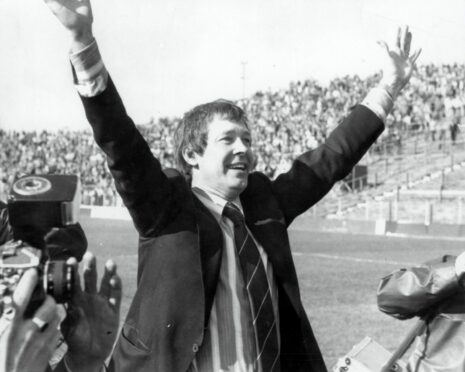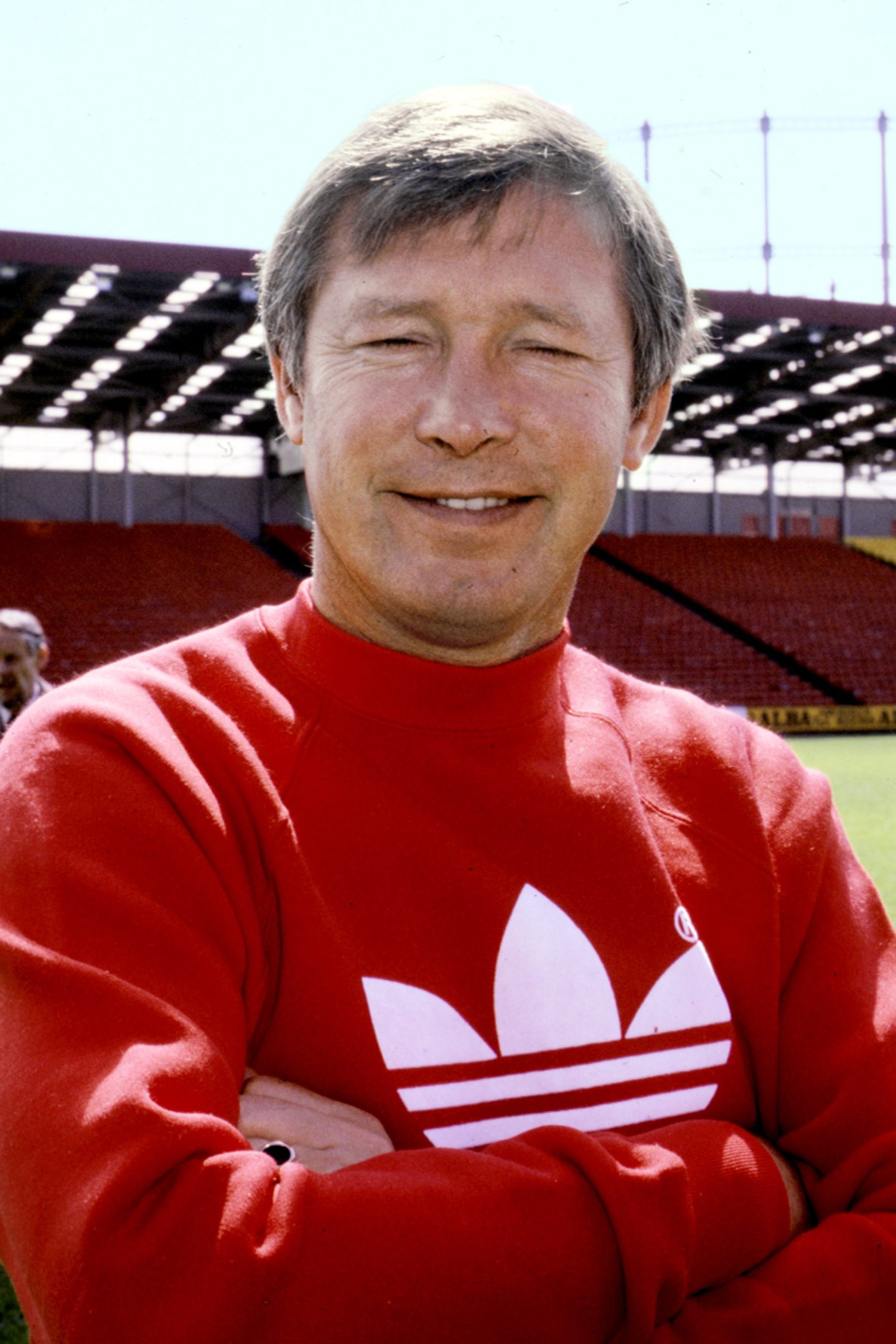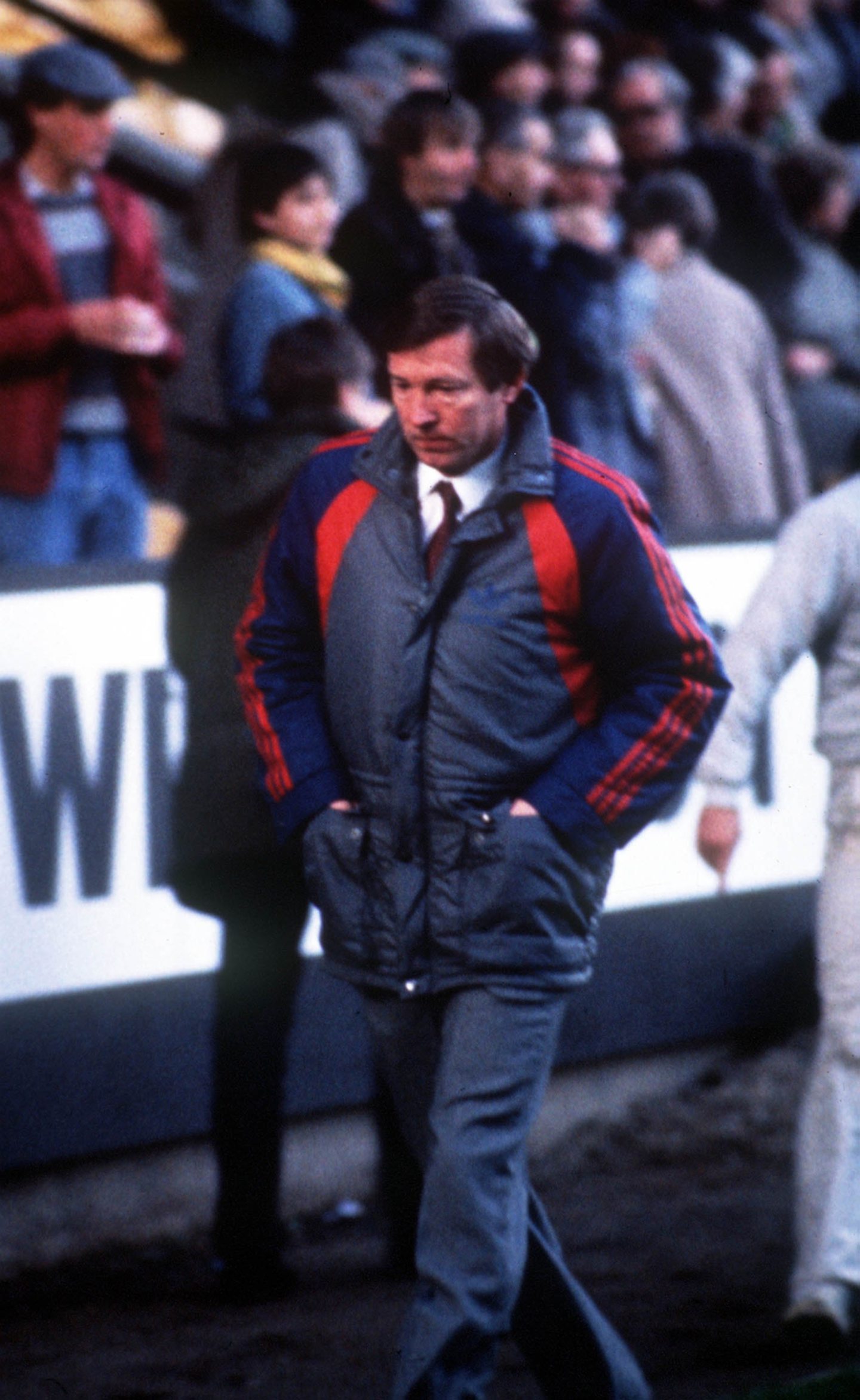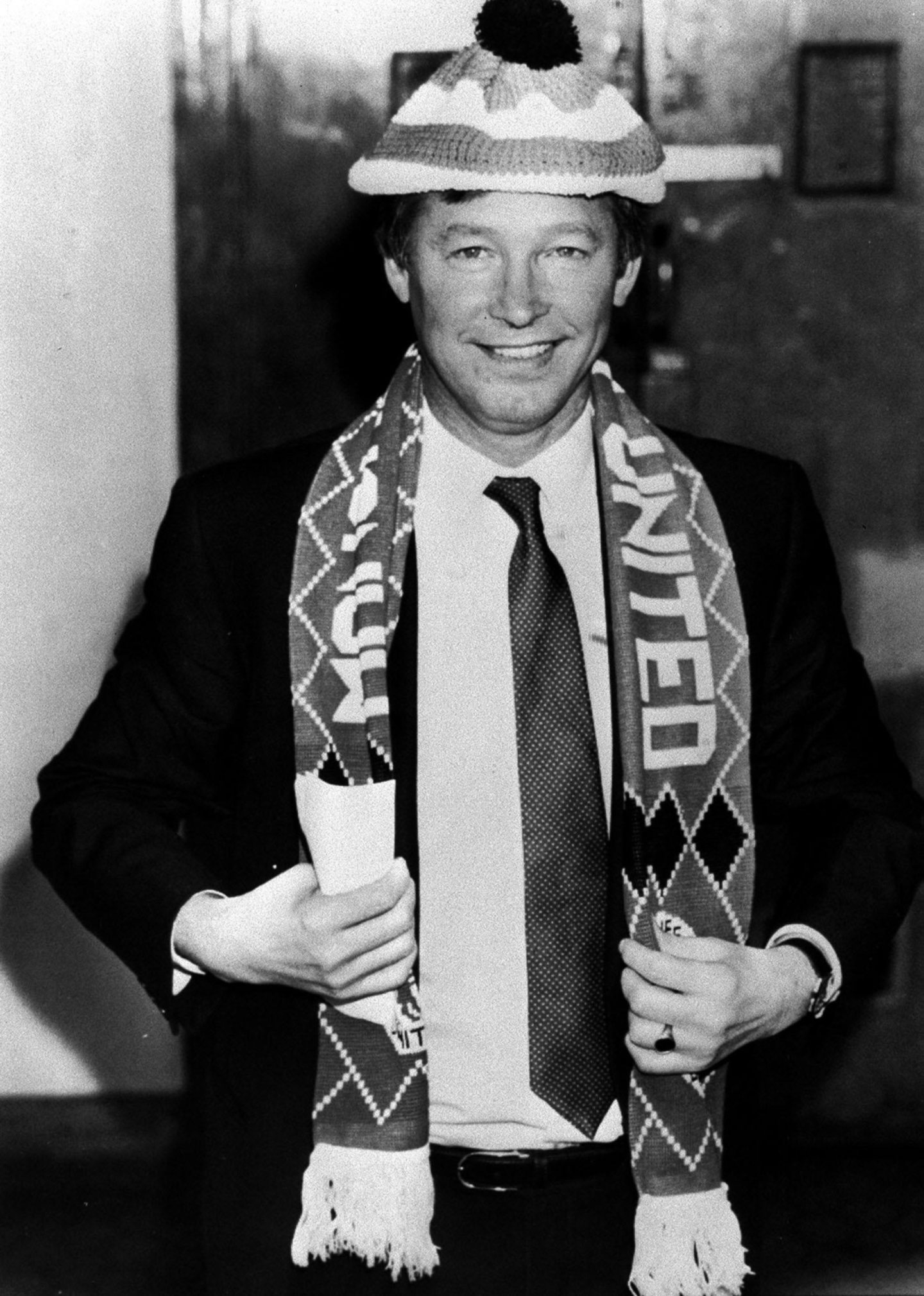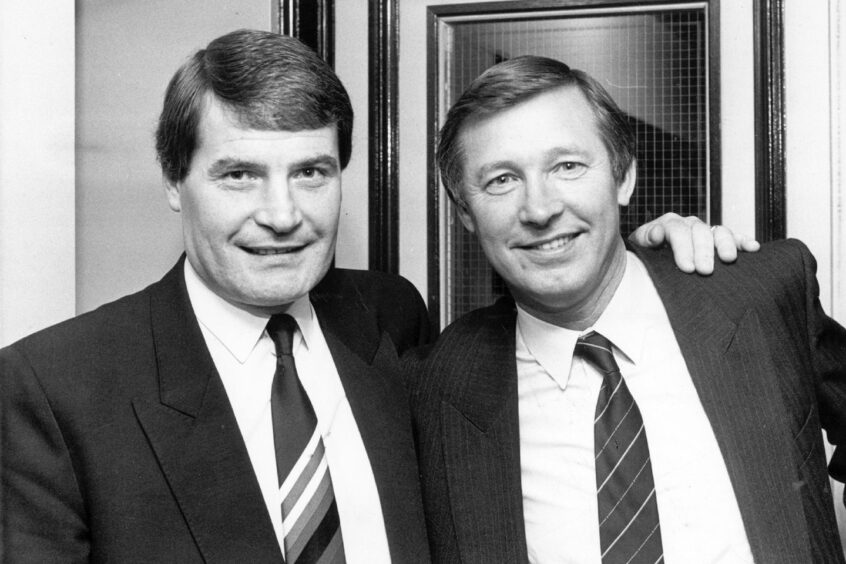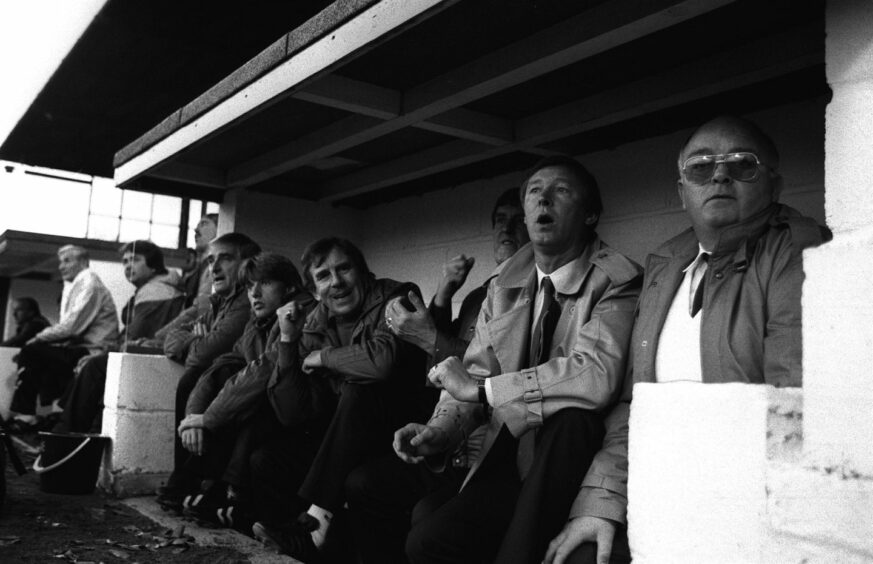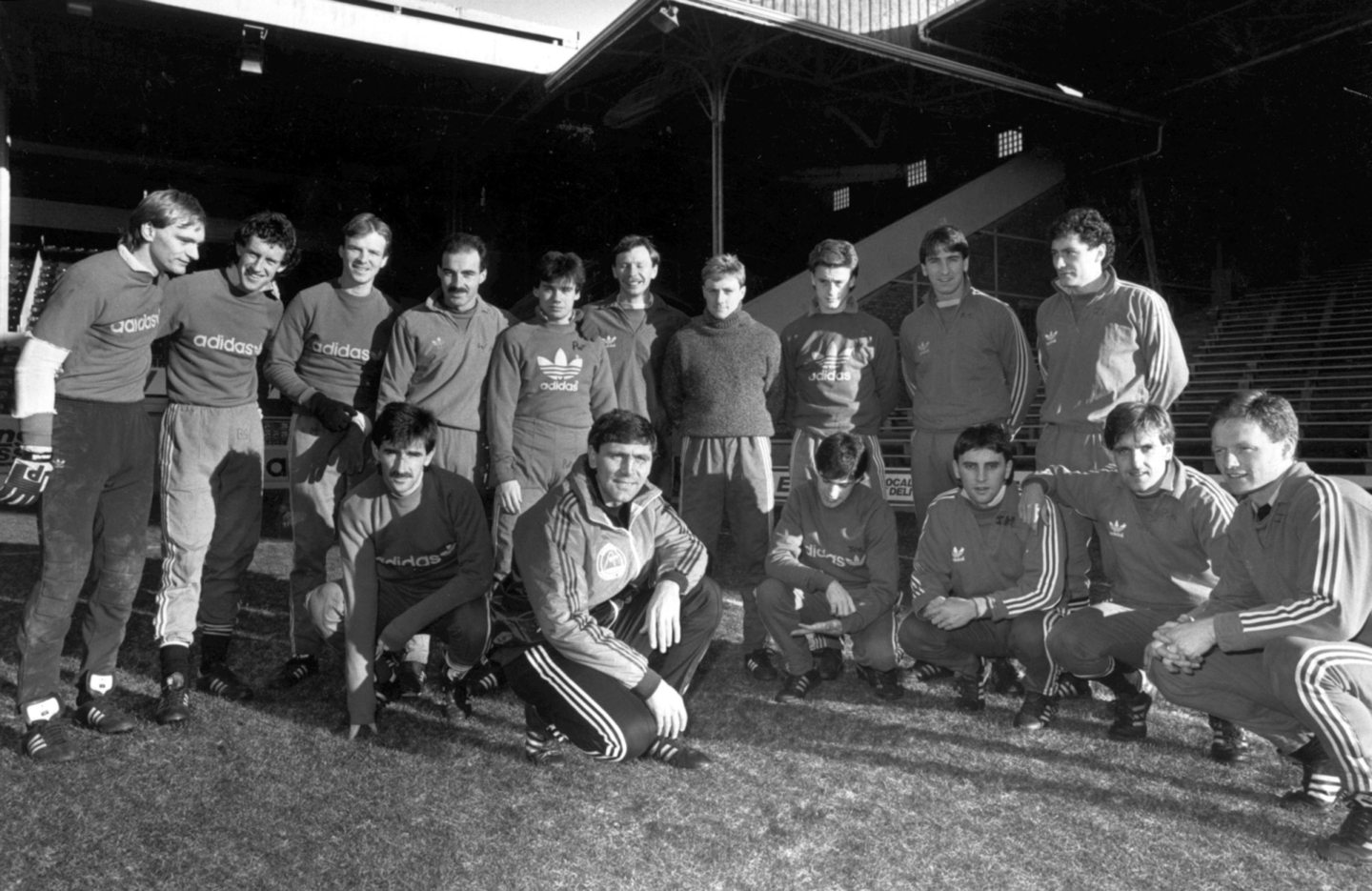Nothing lasts forever in life or in sport – the wheel turns, the clock ticks on and change happens as surely as night follows day.
Yet that doesn’t lessen the shock at the end of an era. And that was why so many Aberdeen supporters were dismayed when they scanned the headline “Fergie, Knox off to United” on the front page of the Press & Journal on November 7 1986.
Although the fans knew the manager’s exploits had become the stuff of legend across Europe during his triumphant spell at Pittodrie, many still clung to the hope he might extend his stay in the north-east and bring fresh silverware to the trophy cabinet.
But all that was dashed in the space of a few paragraphs which reported: “Aberdeen manager and director Alex Ferguson has agreed to become Manchester United’s eighth manager since the (Second World) war – only hours after the dismissal of Ron Atkinson.
“The 45-year-old, the Dons’ boss since 1978, is moving just five months after giving up the Scotland manager’s job – and Archie Knox, his co-manager, is moving to Old Trafford as well.
“Ferguson said last night that United were “the only club in the world” that could have persuaded him to leave Aberdeen.”
It brought the curtain down on a period of unprecedented success – and even now, 36 years later, supporters still feel a mixture of pride at what the Glaswegian achieved and regret that he was gone in what seemed like the blink of an eye.
Inspired by the steely, Stakhanovite attitude of Ferguson, the Dons were undoubtedly the dominant force in the Scottish game from 1979 to 1985.
They won three Scottish championship titles, half-a-dozen domestic cup competitions and, most famously, the European Cup-Winners Cup in 1983.
But, as he said in confirming his exit: “After eight years working with (club chairman) Dick Donald and everybody else at Pittodrie, I cannot begin to express the sadness I feel at having to end what for me has been an unforgettable experience.
“The Old Trafford job, however, was something I could not turn down.”
Willie Miller, for so long the captain under Ferguson, summed up the feelings of the players after learning the news, but while the speed with which matters were concluded clearly shocked some at the club, Miller was not one of them.
He said: “The first reaction, of course, is disappointment that we are losing Alex, but looking at it from the manager’s point of view, it is a step forward and it was probably a challenge which he could not resist, given his record.
“It was not unexpected that he would be approached by Manchester United, but everyone at Pittodrie will be disappointed that he has accepted.”
That was an understatement. Dick Donald described himself as “shattered” after his hastily-arranged meeting with Old Trafford chairman Martin Edwards and, for once in football, it seemed that money was not the issue.
As he added: “Manchester United have agreed to compensate us for the unfulfilled portion of Mr Ferguson’s contract, but how on earth can you evaluate the loss of his services, considering what he has done here?”
Ally Begg was just a teenager when he started attending Aberdeen matches at Pittodrie and he and many others of his generation grew accustomed to watching their heroes joust with giants and emerge with the spoils of victory.
He told me: “To be honest, with the innocence of youth, I had hoped that Sir Alex Ferguson would remain Aberdeen manager forever.
“It came as a horrible shock when the news broke that he was leaving us for Manchester United.
“I remember reading the newspaper before heading to school and could not quite believe it, because it was a devastating blow.
“He was the only Aberdeen manager I had ever known, so it was a very strange feeling knowing we would no longer see him take charge of the team.”
Ally added: “I have so many abiding memories of Sir Alex Ferguson at Pittodrie that I don’t know where to begin.
“I can still see him running down the track towards the tunnel after the full-time whistle blew in the Bayern Munich (quarter-final European) game (in 1983).
“I had such a good vantage point from the Main Stand that night that I could see the joy which was etched on his face.
“I also remember very well the reception that he received before the second-half in the game against Beveren (in 1983) as he walked towards the dug-out when it was announced he had signed a new (five-year) contract to stay as Aberdeen manager, and everybody was on their feet that night!
“I can also recall meeting him for the first time when my late father was a guest at Pittodrie, and he came into the suite and signed my programme.
“I had no idea at the time that he knew my grandfather as he took 10 minutes out of his time to talk to us.
“He even put his hand on my head and ruffled my hair as we said goodbye – I have never forgotten that.”
Jock Gardiner, who now works with the AFC Heritage Trust, recalled being “absolutely gutted” when he heard about the news “on the back page of the P&J in the library of Aberdeen University Agriculture Department”, where he was an undergraduate student.
He recognised that the challenge from Ibrox under the recently-appointed Graeme Souness would clearly pose a serious threat to Aberdeen, but that was something which, in any other circumstances, Fergie would have relished.
As Jock said: “My initial reaction was: ‘How could he leave Aberdeen, with all the success he had generated and having the run of the club?’ and I remember at the time feeling let down by his decision.
He got his retaliation in first
“This was evident among the Red Army because Archie Knox was booed by the crowd as he made the walk to the dug-out for the last time before heading off to join Fergie at Old Trafford.
“But with hindsight, what struck me about the manager was the way he took the fight to the Glasgow sides at Hampden, at Parkhead and at Ibrox.
“He was no shrinking violet and got the Reds’ retaliation in first and brought a real confidence to the club, players and support when venturing to Clydeside.”
Nobody else has managed to reproduce that quality in the last 35 years.
The P&J football writer, Alastair MacDonald, wrote a prescient column on the day after Ferguson had revealed his exit plan.
As he stated, there was never going to be any dearth of candidates to replace him and Knox, but how could they possibly follow in his footsteps?
He said: “The high standards set by Mr Ferguson during his Pittodrie reign do not make the board’s task of finding his successor any easier.
“And the directors’ problem is compounded by a scarcity – within Scotland, at least – of candidates of suitable stature who might be available.
“Amid the welter of names which will undoubtedly be bandied about in the coming days, one person who seems to me to have a more than reasonable chance of fitting the bill is Sandy Jardine, who has proved his abilities while in double-harness with Alex MacDonald as the Hearts management team.
“Time will tell.”
It did. Later that month, Dunfermline-born Iain Porterfield, who had famously scored the winning goal when Sunderland overcame the odds to beat mighty Leeds in the 1973 FA Cup final, was appointed the new Aberdeen manager.
But he was filling a giant’s shoes. During his two years at Pittodrie, the Dons did reach the Scottish League Cup final, and qualified for Europe in both seasons.
Yet he couldn’t come remotely close to emulating Fergie’s exploits.
Nobody could. Neither at Aberdeen… or Manchester United.
More like this:
Aberdeen’s 80s heroes could have lined up in Escape to Victory
